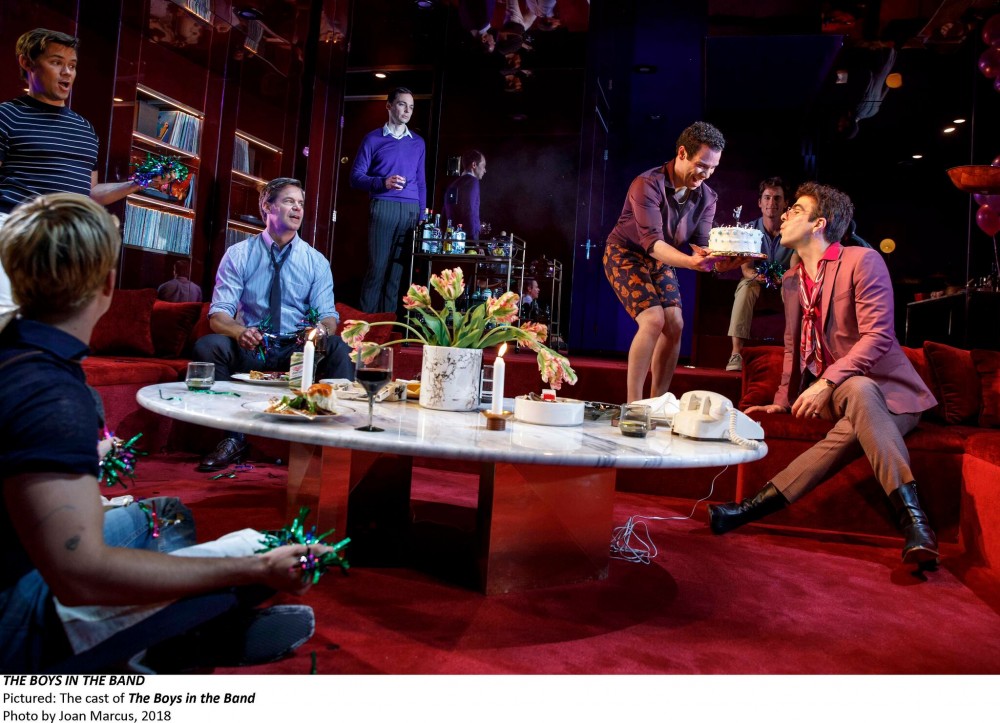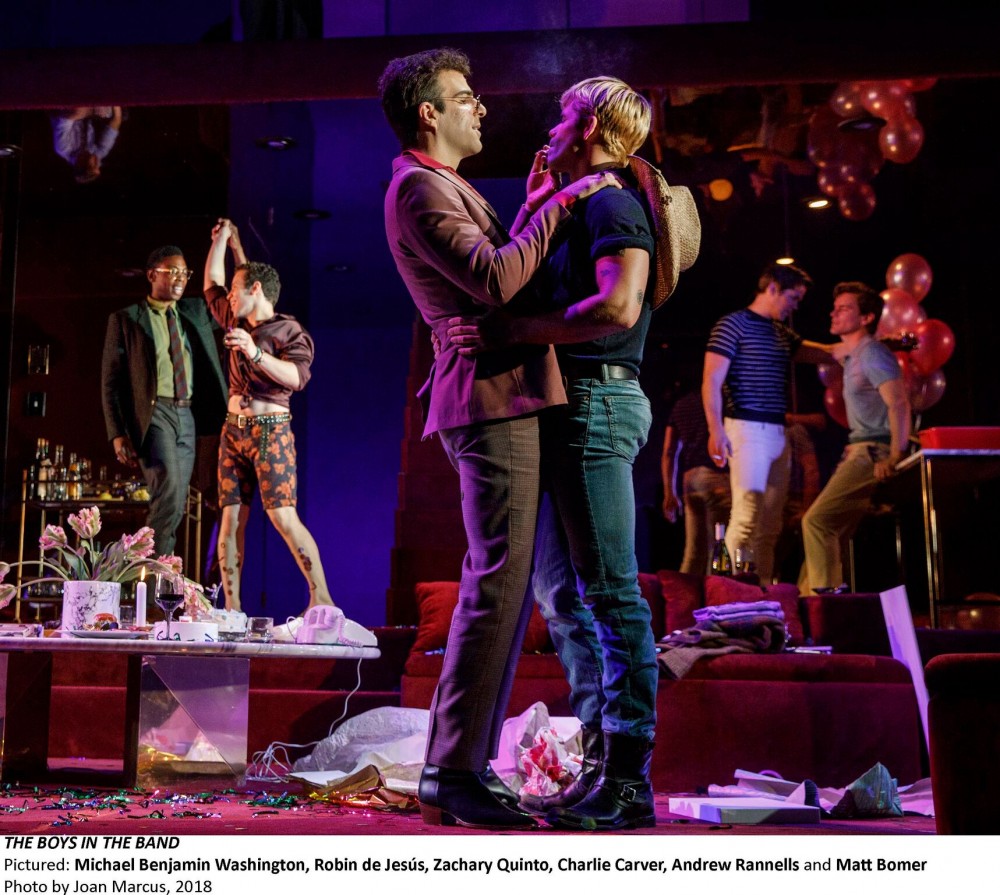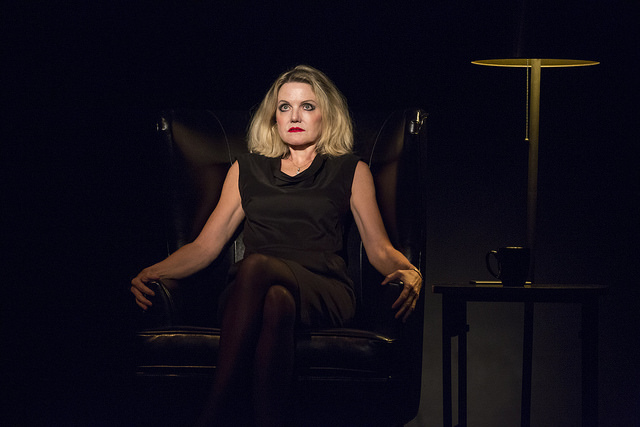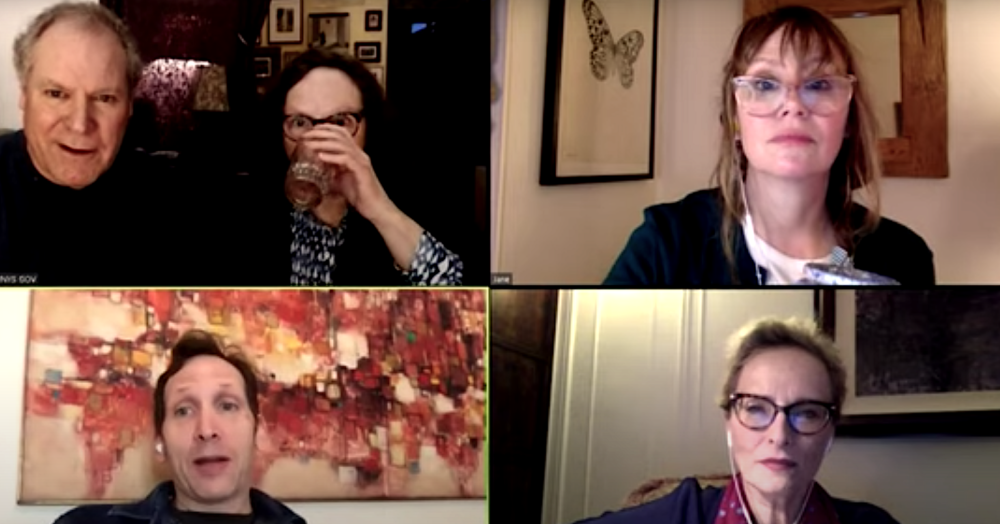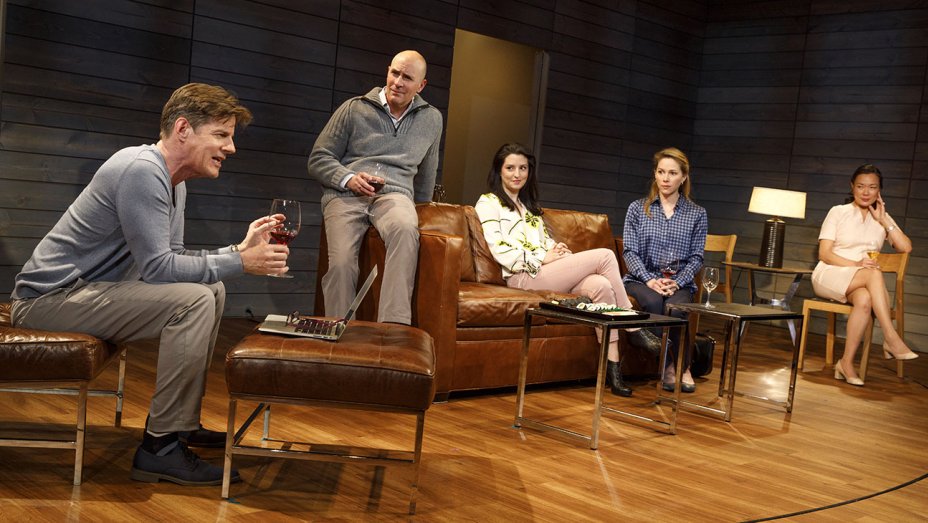by Brian Scott Lipton
High expectations, tinged with just a little bit of dread and a pinch of skepticism, may be in the minds of many people as they enter the Booth Theater for the first-ever Broadway production of Mart Crowley’s landmark 1968 play “The Boys in the Band.” Will this laceratingly funny, if ultimately sad look at eight gay friends (and one ostensibly straight man) feel simply like a period piece meant to remind us about how homosexuals lived in pre-Stonewall 1968 or will it remain painfully relevant today?
And what about director Joe Mantello’s casting nine out gay men – including megastars Jim Parsons, Matt Bomer and Zachary Quinto? Is it another example of his superb instinct to matching actors to roles, a political statement, or maybe even just a publicity stunt? It’s all a lot of burden for one show (now cut to 110 intermissionless minutes) to take on!
Well, as the sassy, effeminate Emory (the scene-stealing Robin de Jesus) might say: “Relax, Mary.” Superbly cast, zippily yet deeply directed and gorgeously designed (the stunning duplex apartment and just-right costumes are by David Zinn), the play makes us laugh long and hard — the quips fly faster than a hummingbird on speed — before it makes us shed a tear or two and stabs us in the heart (and then smartly allows us to regain our breath).
Yes, there’s no question that the guests gathered at the home of the seemingly wealthy Michael (Parsons) to “celebrate” the birthday of the caustic Harold (Quinto) aren’t people you might want at your party. They lash out at each other, with alarming frequency, because of an inner self-loathing and a society that ensured such a gathering would have to take place in an apartment rather than a restaurant for fear of gay-bashing (verbal or physical).
Still, they are not strangers to most of us, who will not just recognize, but be forced to admit that too many gay men still drown (or at least self-medicate) their self-hatred in alcohol and pot, rely on bitchy quips rather than honest sentiment, or literally and figuratively stand on the sidelines rather than truly commit to intimacy, much like Michael’s good friend Donald (the stunningly gorgeous, affecting Bomer).
Moreover, all of us (gay or not, I imagine) still struggle with such issues as fear of aging or the importance of monogamy — the latter of which is the subject of the ongoing debate between the recently separated Hank (a fine Tuc Watkins) and his more-promiscuous lover, the handsome, somewhat callow Larry (a perfectly cast Andrew Rannells). And as we’ve just been reminded on Twitter, and as the show’s sole African-American character Bernard (Michael Benjamin Washington) knows, racism is a never-ending thread in the fabric of American life. Is this really 1968 or did someone forget to change the calendar?
As good as the entire cast is, Quinto deserves the highest honors for giving a truly transformative turn – in voice, looks and mannerisms – as Harold, the self-described “pockmarked Jew fairy,” who can use his martini-dry wit as easily as his intellect to cut down anyone in the room. Yet, it’s also Harold who shows the most kindness to “Cowboy” (the adorable Charlie Carver), the naïve, dimwitted young hustler Emory has ordered as Harold’s “birthday present.”
As for Parsons, who could just rest forever on his “Big Bang Theory” laurels, he proves once again that his talents far exceed what we see on the small screen. Yes, like his TV alter ego Sheldon Cooper, Michael is the master of the sarcastic retort. But Parsons doesn’t shy away in showing just how malicious his character can be (especially with a few drinks in him). Nowhere is this more evident than when he relentlessly badgers his visiting college chum Alan (an excellent Brian Hutchinson) into admitting his past (and possibly present) homosexuality. And almost no moment in the show has the same impact as when Michael grabs the phone from Alan’s shaking hands. (If Crowley’s play has one big fault, it’s that he never fully makes us believe why Alan stays at the party long past the point when he should escape.)
Still, Crowley ultimately allows a shred of sympathy for Michael at the play’s end, which is just one reason this “Band” plays on –and so well—a half-century later.
The Boys in the Band, Booth Theater, 222 West 45 Street, NYC


